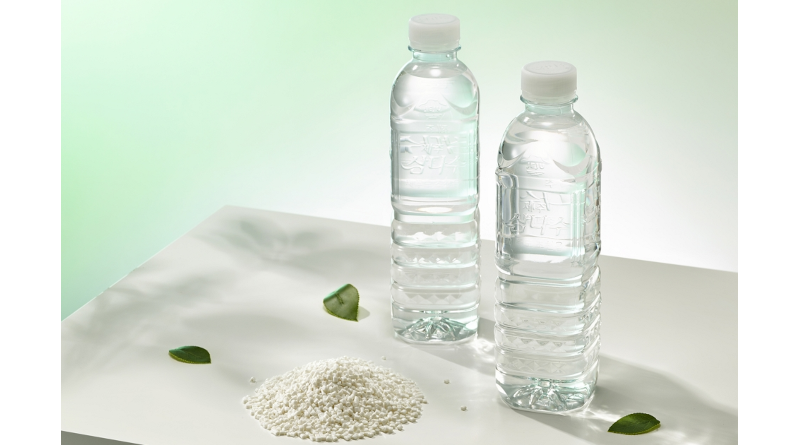SK Chemicals enters chemically recycled PET market with a 98.4 million dollar investment
South Korean SK Chemicals accelerates its entry into the global market and business expansion with the world’s first chemically recycled BHET (r-BHET) and chemically recycled PET (CR-PET) production system.
SK chemicals announced on March 6 that it held a board of directors meeting and signed an asset transfer agreement related to the chemically recycled BHET and chemically recycled PET business division of Shuye, a Chinese company specialising in green materials. The acquisition price for this deal is approximately 98.4 million dollars.
SK chemicals’ acquisition of Shuye’s assets includes a depolymerisation plant that chemically decomposes waste plastics to produce recycled BHET and a CR-PET production facility that uses the r-BHET produced here to make PET again. As a result, SK chemicals has secured the world’s first commercially available polyester chemically recycled raw materials and production facility, which can be sold separately.
Through the acquisition of Shuye’s assets, SK chemicals has obtained a commercial production system for chemically recycled BHET and products that utilise depolymerisation technology about 1-2 years ahead of other domestic companies. By producing recycled plastic raw materials such as waste PET in China, where there is abundant supply, SK chemicals is expected to gain a high level of price competitiveness.
Through this investment, SK chemicals has completed a recycled plastic value chain that extends to chemically recycled BHET, chemically recycled PET, and chemically recycled copolyester (CR-Copolyester), securing the sustainability of copolyester, which is its core business, and laying the groundwork for new growth.
According to Wood Mackenzie’s report, the global recycled PET market in 2022 is approximately 9.7 million tons, with the majority of the market currently being mechanically recycled PET (MR-PET). The chemically recycled PET market, which is yet to be formed due to raw material shortages such as ‘r-BHET,’ is expected to rapidly grow by 2030 to form a 4.6 million-ton (about 7.57 billion dollars) market due to various factors such as carbon emissions, regulations on plastic use and recycling, and changing consumer preferences for a circular economy. As such, SK chemicals expects to grow with the aforementioned asset acquisition.
Along with the expansion of its copolyester business, SK chemicals plans to make the chemically recycled BHET and chemically recycled PET businesses with high growth potential as new growth drivers and focus on them starting from the early stage of market formation.
SK chemicals’ strategy is to supply chemically recycled PET to the domestic and foreign food and beverage bottle markets, as well as the food packaging film market, highlighting its good properties such as transparency, appearance, and stability. In addition, the company plans to enter high-value-added markets, such as industrial specialty fibers, where the use of physically recycled PET is difficult, and take the lead in the global 7.57 billion dollars market. The company also plans to sell the chemically recycled BHET as a standalone product to polyester manufacturers who want to produce recycled products.
By quickly validating its own technology through operations of the secured production and pilot facility, SK chemicals plans to accelerate domestic depolymerisation plant investment and continuously discover business partners to build global production infrastructure in Europe, North America, and beyond.
In addition, SK chemicals plans to accelerate the development of depolymerisation technology with ‘r-TPA,’. ‘r-TPA’ is a chemically recycled raw material that is claimed to allow easy removal of impurities from waste PET and production of high-quality recycled plastic without requiring additional production equipment.
Photo: Water bottles made from chemically recycled BHET and chemically recycled PET

